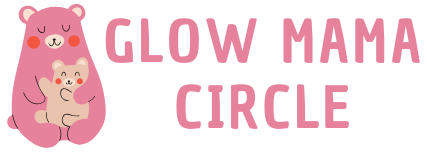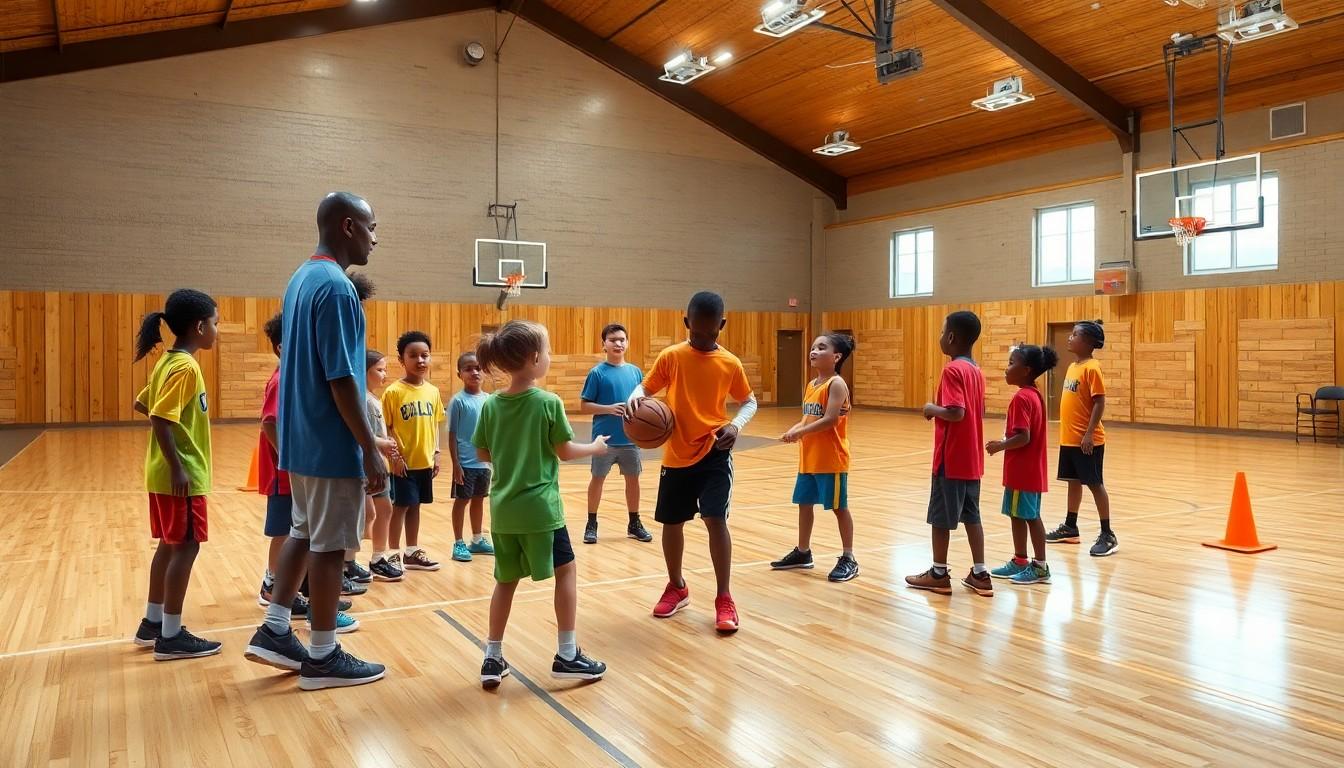Table of Contents
ToggleLooking for ways to channel your kid’s boundless energy into something productive? Local sports activities offer the perfect solution to transform those living room acrobatics into real athletic skills. From soccer fields to swimming pools your community likely buzzes with opportunities for young athletes to thrive.
Getting kids involved in sports doesn’t just wear them out before bedtime – it builds confidence teamwork skills and healthy habits that last a lifetime. Whether your little one dreams of scoring the winning goal or simply needs to burn off some steam after school there’s a perfect sporting activity waiting just around the corner. Plus it’s a great way for parents to meet other families while watching their kids discover new passions and abilities.
Finding Age-Appropriate Sports Programs in Your Area
Local recreation centers offer sports programs tailored for specific age groups: 3-5 years, 6-8 years, 9-12 years. These divisions ensure children participate with peers at similar developmental stages.
Youth sports leagues organize activities based on skill levels:
- Beginner leagues focus on fundamental movement skills
- Intermediate programs incorporate basic game strategies
- Advanced divisions emphasize competitive play techniques
Community centers maintain updated directories of sports programs:
- YMCA locations provide year-round athletic activities
- Parks departments host seasonal sports clinics
- School districts coordinate after-school sports teams
Online resources streamline the search process:
- ActivityHero lists local sports classes by age group
- TeamSnap displays youth league schedules
- KidsActivities.com features sports program reviews
| Age Group | Recommended Activities | Typical Program Duration |
|---|---|---|
| 3-5 years | Movement games, basic coordination | 30-45 minutes |
| 6-8 years | Team sports intro, swimming | 45-60 minutes |
| 9-12 years | Competitive sports, specialized training | 60-90 minutes |
Registration periods vary by program type:
- Summer camps open enrollment 3-6 months ahead
- Seasonal leagues register 2 months before start
- Year-round programs offer rolling admissions
- City recreation department websites
- Community bulletin boards
- Social media sports groups
- Local parenting networks
Local Community Centers and Recreation Facilities
Community centers serve as hubs for youth sports activities, offering structured programs in climate-controlled environments year-round. These facilities provide professional instruction, maintained equipment and dedicated spaces for multiple sports activities.
Parks and Recreation Department Programs
Local parks and recreation departments coordinate comprehensive sports programs in municipal facilities throughout the year. Programs include:
- Basketball leagues operating in 8-week sessions across 12 neighborhood gyms
- Swimming classes at 5 indoor aquatic centers with certified instructors
- Gymnastics programs featuring 6 skill levels at 3 dedicated training centers
- Tennis lessons on 24 public courts with USPTA certified coaches
- Indoor soccer leagues running 10-week seasons in climate-controlled facilities
Program fees range from $45-$125 per session, with resident discounts available. Registration opens 6 weeks before each program start date through the parks department website or recreation center offices.
YMCA Sports Activities
YMCA facilities offer comprehensive youth sports programming with:
- Year-round basketball programs spanning 4 age divisions
- Soccer leagues for ages 4-14 in indoor arenas
- Martial arts classes with belt advancement opportunities
- Volleyball clinics focusing on fundamental skills
- Swimming instruction following YMCA aquatics curriculum
Members receive priority registration and discounted rates starting at $35 per program. Non-members can participate at standard rates ranging from $50-$150 per session. Programs run in 6-12 week cycles with new sessions starting monthly across 8 YMCA locations.
School-Based Sports Activities
School athletic programs provide structured physical activities integrated into the educational environment. These programs combine academics with athletics through organized practices sessions facilities maintenance certified coaches training schedules.
After-School Athletics Programs
After-school sports activities run from 3:00 PM to 5:30 PM on weekdays during the academic year. Students participate in supervised training sessions led by certified coaches who focus on skill development movement fundamentals game strategies. Programs include basketball volleyball track soccer gymnastics swimming based on seasonal rotation schedules. Each activity accommodates 15-25 participants per group with separate divisions for grades K-2 3-5 6-8. Registration costs range from $75-$150 per semester including equipment usage facility access coaching instruction.
Seasonal Sports Leagues
Schools coordinate intramural sports leagues aligned with traditional sports seasons throughout the academic year. Fall programs feature soccer cross country flag football running September through November. Winter activities include basketball volleyball indoor track operating December through February. Spring leagues offer baseball softball track tennis from March through May. Each league consists of 8-12 teams with 12-15 players per roster competing in weekly games tournaments. Practice sessions occur 2-3 times weekly with games scheduled on weekday afternoons weekend mornings. League fees range from $85-$125 per season covering uniforms equipment officials facility usage.
| Season | Sports Offered | Duration | Cost Range |
|---|---|---|---|
| Fall | Soccer, Cross Country, Flag Football | Sept-Nov | $85-$110 |
| Winter | Basketball, Volleyball, Indoor Track | Dec-Feb | $95-$120 |
| Spring | Baseball, Softball, Track, Tennis | Mar-May | $100-$125 |
Private Sports Facilities and Training Centers
Private sports facilities offer specialized training environments with professional coaching staff dedicated to developing young athletes’ skills. These establishments combine structured programs with state-of-the-art equipment to maximize athletic development.
Indoor Sports Complexes
Indoor sports complexes feature climate-controlled spaces that operate year-round regardless of weather conditions. Multi-sport facilities include full-size basketball courts, indoor soccer fields, batting cages for baseball practice, and volleyball courts. Elite facilities like LA Fitness and 24 Hour Fitness provide dedicated youth zones with age-appropriate equipment. Training sessions run 45-90 minutes with flexible scheduling options from 6 AM to 8 PM daily. Modern complexes incorporate video analysis rooms, performance tracking technology, and sport-specific training zones. Membership packages range from $65-$150 monthly with options for individual sessions or group training.
Professional Training Academies
Professional training academies focus on sport-specific skill development through structured programs led by certified coaches. Elite academies partner with former professional athletes to deliver specialized instruction in sports like tennis, soccer, basketball, and swimming. Training programs follow progressive skill development models with 8-12 week sessions meeting 2-3 times weekly. Advanced academies utilize performance metrics to track improvements in speed, agility, strength, and sport-specific skills. Programs include video analysis, nutrition guidance, and personalized training plans. Academy memberships start at $125 monthly with evaluation sessions priced at $45-75. Elite programs offer college recruitment preparation for high school athletes.
Choosing the Right Sports Activity for Your Child
Selecting an appropriate sports activity enhances a child’s physical development while ensuring long-term engagement. The selection process involves evaluating several key factors to match activities with individual capabilities.
Evaluating Skill Level and Interests
Initial skill assessments determine the most suitable entry point for children in sports programs. Basic motor skills testing includes running speed, hand-eye coordination exercises, balance checks, movement patterns. Certified youth sports coaches conduct these evaluations at local recreation centers through 30-minute sessions. Professional sports academies offer comprehensive athletic assessments using standardized testing protocols for ages 5-12. Children demonstrate natural inclinations toward specific activities: some excel in team sports like soccer basketball while others prefer individual activities like swimming gymnastics. Parents track their child’s spontaneous play patterns to identify preferred physical activities noting sustained engagement in particular movements or games.
Considering Time and Budget
Sports program costs range from $45 for community center classes to $250 for private training sessions. Recreation department programs offer 8-week sessions meeting twice weekly for $75. YMCA memberships include access to multiple sports programs at $65 monthly. Private academies charge $125-$200 per month for specialized training. Practice schedules vary from 45-minute sessions to 2-hour training blocks. Community leagues schedule games on weekday evenings between 5:00 PM-8:00 PM. Weekend tournaments occur monthly requiring 4-6 hour time commitments. Travel teams demand additional time investments with bi-weekly away games during peak seasons. Registration deadlines fall 3-4 weeks before program start dates allowing families to plan schedules accordingly.
Benefits of Youth Sports Programs
Youth sports programs provide essential developmental advantages for children through structured physical activities and team interactions. These programs create foundations for lifelong wellness habits while fostering crucial social connections.
Physical Development Benefits
Regular participation in youth sports strengthens cardiovascular health through aerobic activities like soccer, basketball and swimming. Sports programs enhance muscle coordination, balance and flexibility through specialized drills and game situations. Children develop proper movement patterns and body awareness through guided instruction from certified coaches. Athletic activities increase bone density during critical growth periods between ages 6-12. Sports training improves reaction time, agility and hand-eye coordination through practice drills and competitive play. Programs incorporate age-appropriate strength training methods to build core stability and prevent injuries.
Social and Emotional Growth
Team sports cultivate leadership skills as children take turns directing warm-ups and organizing practice activities. Players learn conflict resolution by working through disagreements during games and practices. Group activities build self-confidence through skill mastery and positive reinforcement from coaches and teammates. Children develop emotional regulation by managing competitive situations and game outcomes. Sports participation teaches accountability as team members rely on each other during practices and competitions. Athletes gain resilience by overcoming challenges and bouncing back from setbacks. Programs create lasting friendships through shared experiences and team bonding activities.
Conclusion
Getting kids involved in local sports activities is a game-changer for their overall development. From community centers and YMCAs to private training facilities and school programs there’s no shortage of options for young athletes in the area.
Parents can feel confident knowing their children will benefit from professional coaching structured programs and quality facilities. The variety of sports activities available means every child can find their perfect fit while building essential life skills.
Taking the first step toward youth sports involvement is as simple as exploring nearby facilities checking online resources or connecting with local recreation departments. It’s an investment that pays dividends in a child’s physical health social development and personal growth.





